
May 4, 2009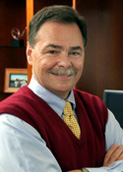 Fred Sanfilippo, MD, PhD |
Transforming health and healing requires transforming culture "Insanity: doing the same thing over and over again and expecting different results." Albert Einstein Just as our own personal interests, abilities, and needs evolve over time, so too do those of an organization such as the Woodruff Health Sciences Center (WHSC). For the past decade, WHSC has been on an impressive trajectory—becoming an internationally recognized leader in research, education, and patient care. This outstanding progress shows that we are an organization of people who don't rest on their laurels; instead, we're thought leaders with a common purpose of serving humanity by improving health. One key aspect of our ability to do that is our willingness to continually transform our behavioral norms, i.e., "culture," to ensure that they optimally support our ever-evolving strategies, goals, and performance. Aligning culture with strategy is a proven way to maximize an organization's success. The good news is that we already have transformed our culture dramatically over the past 20, 10, and even five years. The transition of The Emory Clinic to an integrated part of Emory Healthcare and WHSC has changed the culture of the clinic, just as the increased focus on research has changed that of the schools of medicine, nursing, and public health. More recently, the development of integrated centers, such as in Transplantation and most recently Critical Care, as multi-disciplinary units spanning multiple departments across the medical school, clinic, and hospitals represents another major shift in performance and culture. Likewise, the development of the department chair/service chief model between the School of Medicine and Emory Healthcare is a significant organizational—and cultural—change. Perhaps most important, initiatives currently under way within WHSC to ensure that our financial practices are well aligned with our strategic initiatives will have a significant impact on expected behavior, i.e., culture. Indeed, increasing alignment and synergy is a basic tenet of our success and a driving factor of our culture transformation initiative. It's not enough to simply hone the individual units of our organization; we must also optimize the ways in which we work together as a whole. To invoke the familiar sports analogy, it doesn't matter how terrific individual players are; if they don't play well together, the team won't be as successful. As organizations like ours become increasingly successful and complex, it becomes especially important for our culture to keep pace. Culture change occurs spontaneously as a result of changes in processes and priorities, but to drive the highest levels of performance, it is essential that we direct this change explicitly. Applying clear processes and measures to assure that things move in the direction we want is just as important for culture as other critical performance parameters. As I shared during the State of the WHSC address, our own leadership has identified specific culture directions for desired change, which is something I also have heard from scores of faculty and staff. Many have said that the rapid growth of WHSC in recent years has outstripped some of the strategies, processes, structures, and behaviors that helped get us to where we are. Furthermore, as we are all too well aware, the external environment has changed dramatically, especially in the past few months. That's why culture transformation is one of the most important initiatives we have under way. We are in the rapids, and we will need to adapt how we do things with increasing nimbleness, transparency, and synergy to remain both effective and true to our values. Some are concerned that directing efforts toward changing our culture implies that our current culture is bad and for that reason prefer to use the term "culture transformation" rather than "culture change." But obviously, our culture is not bad. Our many successes of the past decade wouldn't have been possible if we didn't have a successful culture. Culture change simply means that we aspire to become even better, and—like many other successful organizations—we recognize that attending to our culture is critical to achieving our ambitions. I recently appointed a Culture Transformation Planning Team under the leadership of Dennis Choi, Carlos Del Rio, and Dallis Howard-Crow. The team is charged to help identify ways in which we can build an even higher performance culture that accelerates momentum toward our goal of being the 21st century model of a health sciences and services center. This team planned and directed a very successful retreat on April 1 to inform, educate, and get feedback from WHSC leadership on culture change, and they are planning several more such meetings for additional groups in May. What does this all mean to you? It means that faculty and staff throughout WHSC will be working together to help align our culture with our evolving strategies and goals and to help each of us attain our very high personal and organizational expectations. This is not a simple or quick undertaking, but rather an ongoing process—unless at some point we are satisfied with our performance and achievements and no longer want to get better. We would like to begin the process by listening to your stories and ideas. What are units and programs across WHSC doing right? What could be done better? We are especially interested in hearing examples of the ways in which you and your team are contributing to the kind of caring, constructive, collaborative, and mission-oriented culture to which we aspire. Please share your stories and ideas with us at evphafeedback@emory.edu. I am confident that we will continue to improve performance—and therefore culture—taking the WHSC from great to even greater as we continue transforming health and healing … together. |
|||
|
Emory's response to H1N1 flu (swine flu) Environment of respect is key to quality Listening to patients and physicians
|
||||
|
Emory's response to H1N1 flu (swine flu) Emory is on the frontline in dealing with the current H1N1 flu (swine flu) outbreak through its role in the Emory/UGA Influenza Pathogenesis and Immunology Research Center (IPIRC). IPIRC is part of a network of six centers funded by the NIH to plan for a pandemic and to implement NIH's public health response plan. IPIRC representatives participated in an international phone conference on April 27, following declaration of an emergency by NIH the preceding day. The Emory/UGA IPIRC currently is redirecting the work of the center to address the flu pandemic response. To access the central Emory source of continually updated information about H1N1 flu, please visit the website of Emory's Office of Critical Event Preparedness and Response. Emory news releases and recent media coverage featuring Emory experts can be found on the WHSC's H1N1 flu web page. Special thanks to those of you who have worked with communications staff to share expertise with the media in the midst of dealing with this issue. |
|||
|
Environment of respect is key to quality If you were a patient in intensive care, would you rather be treated by a team whose members liked and respected each other or by a team whose members did not? This question was asked by speaker Michael Leonard at Emory Healthcare's second annual quality conference on April 20. An environment of respect is key to health care quality and safety, said Leonard, an expert on effective teamwork and communication, a national physician leader for patient safety at Kaiser Permanente, and a faculty member of the Institute for Healthcare Improvement. He said that the strongest predictor of clinical excellence is whether individual members of a unit team feel comfortable and safe in reporting a mistake or voicing a concern. "If we could fix this one thing, we could put risk managers out of business." The conference's second speaker, William Schwab, also emphasized the importance of teamwork—in this case between health care providers and their patients and families. Schwab, who is vice chair of family medicine at University of Wisconsin School of Medicine and an officer on the board of the Institute for Family-Centered Care, talked about patient/family-centered care as an evolving discipline that is reaping results not only in reducing errors, risk claims, and staff turnover but also in increasing health care's cost efficiency. "We must always think of ourselves as doing things not to or for our patients and their families but with them," he said. The program included a panel discussion on teamwork among providers, patients, and families. Moderated by the guest speakers, the panel included three Emory patients and three Emory clinicians. One of the clinicians, surgery chair Chris Larsen, said that having daily huddles at 8:00 each morning to discuss challenges of the day among team members in the outpatient transplant clinic (including staff at the front desk) is a powerful tool for improving team cohesiveness, which in turn improves quality. Before the era of daily huddles, he said, he was chagrined to admit that he hadn't known all the team members' names. The conference, which was broadcast to Emory University Hospital, EUH Midtown, Wesley Woods, and Emory University Orthopaedics & Spine Hospital, included poster presentations compiled by unit teams throughout Emory Healthcare on quality-improvement projects. The number of posters submitted this year, 70, was double that of last year. These posters will be on display in the WHSC administration building through May 11. |
|||
Bio stats: Contact: |
Listening to patients and physicians One in a series of profiles of people in the Woodruff Health Sciences Center Like all good matchmakers, members of Lori McLelland's staff know how to listen. McLelland, a registered nurse, leads two teams in Emory Healthcare Marketing who are experts in lending their ears: (1) Emory HealthConnection nurses who take calls from patients and referring physicians and match them with appropriate Emory clinicians and (2) physician affiliates who travel around the state as liaisons to referring physicians in their own communities. Emory HealthConnection is staffed by 14 full- and part-time nurses who handle approximately 300,000 incoming and outgoing phone calls per year. At least 10,000 calls per month are from patients or family members seeking care. New patients may be unsure about which specialty they need, but they do often express other types of preferences. During the past decade, for example, the number of women requesting a female gynecologist has more than doubled. Patients may ask for an older doctor, a graduate of a particular medical school, someone of the same ethnicity (Greeks and Indians are both very popular in Atlanta), or one who is fluent in a specific language. HealthConnection finds a match whenever possible. In addition to the standard HealthConnection line (404-778-7777), staff handle 12 other phone lines, including a physician referral line, a Wesley Woods senior resource line, and even a line for nursing recruitment. Callers register for Emory Healthcare classes or lectures (334 offered last year alone) or for screenings and other events. Others want information about something they've seen on the Internet or evening news: a flu epidemic, a manufacturer recall of a medical device, or an outbreak of drug-resistant TB. In addition to getting callers what they need, HealthConnection staff also collect data on who is calling, what services they seek, and how they heard about Emory. Overwhelmed by their medical problems, callers sometimes become emotional. Grateful patients frequently call back after they have had their care to report what happened and to thank the nurse who helped them find the care they needed. If HealthConnection nurses are the go-to people for patients and the public, physician liaisons are the people to whom community physicians often turn. Each of the five physician liaison staff members on McLelland's staff visits at least 80 physicians throughout Georgia every month, both current and potential referring doctors. They find out what these physicians need from an academic medical center and explain what Emory offers, especially services unavailable elsewhere in the region. They also facilitate referrals and follow-ups of individual patients, troubleshoot problems, and ensure that the physicians are satisfied with how Emory treats them and their patients. Liaisons often bring along Emory physicians to meet with their community colleagues or to give lectures at local grand rounds or journal club dinners. The face-to-face marketing effort helps build and maintain relationships and thus helps grow business. McLelland has been in her matchmaking job for 12 years now. "It still fascinates and moves me," she says. "It makes me proud to be part of Emory." |
|||
 |
The international biotechnology spotlight will shine on Atlanta May 18-21 when the Biotechnology Industry Organization (BIO) holds its international convention at the Georgia World Congress Center. The 2009 meeting, with the theme of Heal, Fuel, Feed the World, is expected to draw nearly 20,000 biotech industry managers, international public officials, governors, chief policy makers, and trade representatives from 70 countries and nearly all 50 states. BIO is the preeminent trade association promoting biotech innovation, representing companies, academic institutions, and state biotech centers in this country and abroad. Emory is joining with BIO's sponsors, Georgia BIO and the Georgia Department of Economic Development, along with the Georgia Research Alliance, to showcase the impact of the state's research and biotech enterprises. Emory research will be featured in sessions on vaccine delivery technologies, nanotechnology, and technology transfer. Emory's Office of Technology Transfer and Yerkes will have exhibits, along with Emory start-up company GeoVax. GeoVax licensed the HIV/AIDS vaccine developed by Harriet Robinson and colleagues at Emory, CDC, and NIH. Robinson is now senior VP of research and development at GeoVax, and the vaccine is currently being tested in Phase II clinical trials at 13 sites, including Emory's Hope Clinic. Emory research labs will host visiting delegations from India, China, Thailand, and France. The delegations will tour facilities at Emory Winship Cancer Institute, the Emory Chemical/Biology Discovery Center, the Emory Vaccine Center, the Emory Glycomics Center, and the Center for Systems Imaging. Emory biotech research will be featured in articles in several BIO-related publications, including a special section in Delta Sky magazine, Georgia Life Sciences Magazine (published by Atlanta Magazine), and Georgia Trend. WABE Radio will air a program in May including OTT director Todd Sherer and Harriet Robinson as part of a six-week biotech series. |
|||
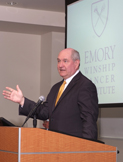 |
• In case you missed details about NCI-Winship… Information in various formats about the Emory Winship designation as an NCI cancer center, announced at Winship by Gov. Sonny Perdue on Apr. 13, is aggregated on the WHSC and Winship websites, including a video, audio slide show, and explanation of what this designation means to Georgia. Read more. Special congratulations and thanks to all the faculty, staff, and leadership who worked so hard to make this happen, including those pictured with EVPHA Fred Sanfilippo below:
|
|||
|
• Endowed chair named for RSPH dean Emory has established an endowed chair in honor of RSPH dean, James Curran. The recognition marks the first time the university has endowed a chair for a sitting dean. Curran and his successors will be known as the James W. Curran Dean of Public Health. The gift was made possible by both Emory University and Lawrence and Ann Klamon. The Klamons are co-chairs of the RPSH's $150 million fund-raising initiative as part of Campaign Emory. The school will name its 2,720-square-foot multipurpose meeting space in its new building after the Klamons. The room will be located on the top floor of the Claudia Nance Rollins Building, slated to open in fall 2010. Read more. |
|||
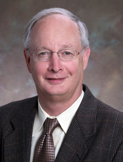 Ray Dingledine |
• Medical school names research dean Raymond Dingledine, chair of pharmacology in the medical school, is the school's new executive associate dean for research, having served in this role in an interim capacity for some months. Dingledine is a neurosciences expert whose own research focuses on signaling pathways in the brain, specifically relative to epilepsy. Read more about this appointment. Read a feature story about Dingledine's role in securing high-throughput robotics screening technology for Emory to aid in development of new drug therapies for lung cancer and other diseases. |
|||
|
• Del Rio chairs global health in RSPH Carlos del Rio has been named Hubert Professor of Global Health and chair of the Hubert Department of Global Health in the Rollins School of Public Health. Prior to this new role, del Rio's primary appointment was in the medical school (infectious diseases), and he served as chief of medicine at Grady Memorial Hospital. He will retain his faculty appointment in the medical school. Del Rio is co-director of the Emory Center for AIDS Research. Under his direction, Emory recently received a $2.94 million five-year grant renewal as an AIDS International Training and Research Program (AITRP), with international collaborations with Mexico, the Republic of Georgia, Rwanda, Zambia, and Vietnam for training fellows in the United States and abroad. Read more about AITRP. Del Rio also is director of WHO's Collaborating Center on AIDS and a member of the Academic Advisory Board of the Institute for Developing Nations. He was recently nominated to the CDC's Advisory Committee on HIV and STD Prevention and Treatment. Read more. |
|||
|
• Butler, Puskas serve leadership roles in heart care Cardiologist Javed Butler recently accepted a new role as deputy chief science adviser for the American Heart Association, a part-time post in which he will work with AHA leadership regarding policy, scientific direction, and strategic goals. Butler directs heart failure research at Emory. He and his colleagues have identified a new biomarker for heart failure and a heart failure risk model. Read more information about his research, bio, and publications. Heart surgeon John Puskas is president of the International Society for Minimally Invasive Cardiothoracic Surgery and received the Chamberlain Award for best paper at the Society of Thoracic Surgeons 2009 annual meeting. Puskas is PI of an NIH grant that makes Emory one of eight U.S. centers linked in a National Heart, Lung, and Blood Institute surgical network. Both Butler and Puskas are fellows of the Woodruff Leadership Academy. |
|||
• CCU recognized nationally for quality Emory University Hospital's 4a5a Cardiovascular-Thoracic Surgical Critical Care Unit received Beacon Designation from the American Association of Critical Care Nurses. This is the first cardiovascular CCU in Georgia to receive this award and one of only 150 CCUs nationally, out of 6,000. Unit nurses submitted an 84-page application documenting quality metrics and other criteria to achieve this designation. Congratulations to all for this important milestone. |
||||
|
• Nursing professor earns Emory's top alumni award Nursing school professor and alumna Sally Lehr received Emory's Turman award, the university's highest honor for alumni service. The ceremony honoring her drew more than 160 attendees, the most ever. Lehr has served on the Nursing Alumni Association Board since the mid-1970s and is currently president. The honor includes a $25,000 donation from the Tull Foundation to the Emory school, unit, or program of the recipient's choice. Lehr said she plans to donate the award to the nursing school and Emory Winship Cancer Institute. Read more. Read a feature about one of Lehr's courses in the nursing school. |
|||
|
• Two centers integrate their administration Administrators in the Predictive Health Institute (PHI) and the Center for Comprehensive Informatics (CCI) are teaming up to share time and expertise across both initiatives. PHI's Lynn Cunningham will function as administrative director for both the PHI and the CCI. CCI's Jack Holton will continue as CCI senior center administrator, with additional responsibilities in the PHI. The two centers will retain their individual identities, operational scopes, and unique missions, but they are highly inter-related programmatically. Bridging them administratively is expected to foster new synergies between them. A microbiologist by training, Cunningham came to Emory in 2002 from Vanderbilt, where he served as vice chair for administration and finance in pathology. He is a fellow of the Woodruff Leadership Academy. A pharmacist by training, Holton was a member of Towers Perrin, a consulting group, for 19 years and has more than a decade of experience as a health plan and hospital administrator. |
|||
|
• Tech Transfer honors Emory entrepreneurs Emory's Office of Technology Transfer honored four Emory faculty members at its annual recognition celebration in March: - Mark Goodman in radiology (Innovation of the Year) for development of PET imaging agents to detect and monitor progression of prostate and other tumors. - Charles Epstein in neurology (Start-up of the Year) for invention of transcranial magnetic stimulation therapy for patients whose depression has been unresponsive to medication. This therapy was developed by Neuronics and received FDA approval in 2008. - Raymond Schinazi in pediatrics (Deal of the Year) for invention of a compound, telbivudine, used to treat chronic hepatitis B. In 2008, Massachusetts-based Idenix Pharmaceutics settled a dispute with Emory and University of Alabama related to this compound, resulting in current and future royalty payments to Emory. - Pharmasset, (Significant Event) a clinical-stage pharmaceutical company founded by Raymond Schinazi in pediatrics and Dennis Liotta in chemistry, for completion in 2007 of an initial public offering of common stock resulting in net cash proceeds of $40.7 million. In 2008 Pharmasset joined the Russell 3000 Index. The company focuses on development of drugs for hepatitis B and C and HIV and currently has three product candidates in various stages of clinical trials. Read more.
|
|||
|
• No shortage of opportunities for volunteering Emory Healthcare has more than 300 volunteers. They come from all over the Atlanta community and include lifetime auxiliary members, former patients or patient families, Emory students, and a number of hardy Emory employees. Every Tuesday afternoon, for example, Amy Fields, executive assistant to EVPHA Fred Sanfilippo, heads to Wesley Woods Towers to lead an arthritis exercise class for 25 or more people, many in their 80s or 90s. Every other Saturday, she leads Bingo at Budd Terrace. On occasion, she also helps out with fall festivals, spring dances, and winter disaster drills. On April 18, Fields and several other volunteers were recognized for their efforts at an awards luncheon in their honor. If the idea of seeing Emory Healthcare from the inside out appeals to you, please call Guest and Volunteer Services at 404-712-0375 to see how your interests can be matched with volunteer opportunities. |
|||
|
||||

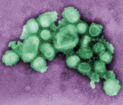 H1N1 flu virus, courtesy of C. S. Goldsmith and A. Balish, CDC
H1N1 flu virus, courtesy of C. S. Goldsmith and A. Balish, CDC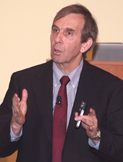 Michael Leonard
Michael Leonard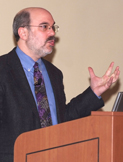 William Schwab
William Schwab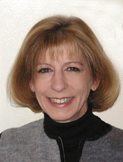 Lori McLelland
Lori McLelland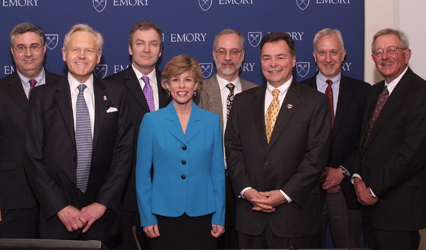
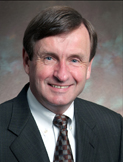 James Curran
James Curran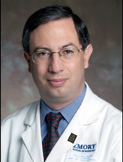
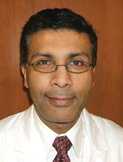 Javed Butler
Javed Butler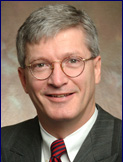 John Puskas
John Puskas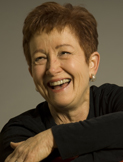 Sally Lehr
Sally Lehr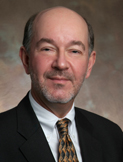 Lynn Cunningham
Lynn Cunningham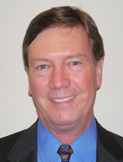 Jack Holton
Jack Holton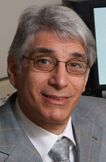
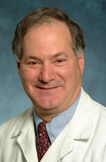
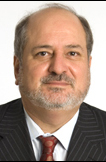
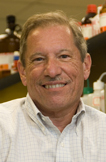
 Amy Fields leads an exercise class at Wesley Woods Towers every Tuesday.
Amy Fields leads an exercise class at Wesley Woods Towers every Tuesday.